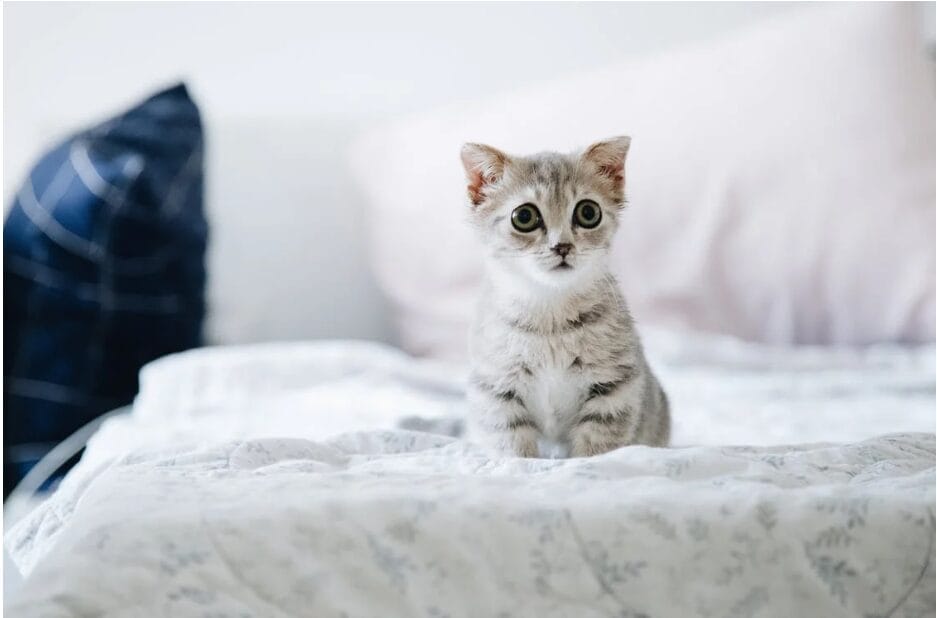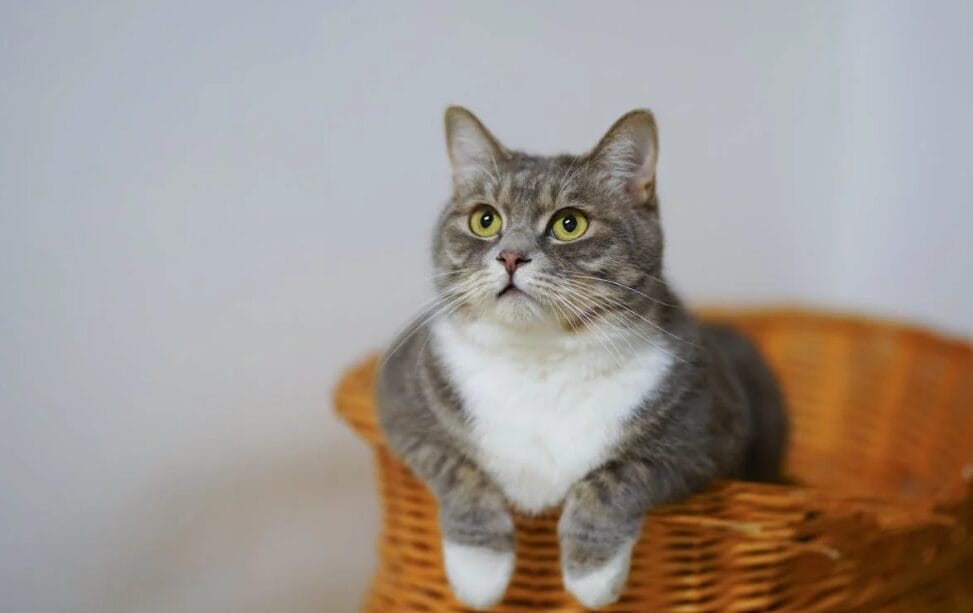Cats are fascinating creatures, full of quirks and behaviors that often leave their human companions puzzled. One common behavior many cat owners observe is their cat becoming hyperactive or overly stimulated when their back, particularly near the base of the tail, is scratched. This reaction can range from enthusiastic purring to sudden bursts of energy, playful biting, or even running around the room. So, why does this happen? Let’s dive into the possible reasons behind this intriguing feline behavior.
1. Heightened Sensitivity in the Lower Back Region

Cats have a highly sensitive area near the base of their tail, known as the lumbosacral region. This area is densely packed with nerve endings, making it a sensory hotspot. When you scratch this area, it can create an intense physical sensation that feels pleasurable or ticklish to the cat. For some cats, this stimulation can trigger an immediate burst of energy, causing them to act hyper.
Think of it as a reflexive response—similar to when humans feel a sudden shiver or twitch when touched in a sensitive spot. However, every cat has a unique threshold for this kind of stimulation. While some enjoy it, others might find it overwhelming.
2. Social and Communication Cues
Scratching a cat’s back mimics some aspects of social grooming, which is a vital part of feline communication. When cats groom each other, they often focus on hard-to-reach areas like the neck, back, and base of the tail. Your scratching could be interpreted as a form of bonding, making your cat feel excited and eager to reciprocate.
This excitement might manifest as playful behavior, such as rolling over, batting at your hand, or giving you a gentle nip. It’s their way of expressing that they’re enjoying the interaction—even if it seems a little chaotic to us.
3. Release of Pent-Up Energy
Cats are naturally energetic and playful animals. When you scratch their back, especially in a way that excites them, it might trigger the release of pent-up energy. This could explain why some cats start zooming around the house or engaging in sudden bouts of play after being scratched.
This behavior might be more pronounced in younger cats or those who haven’t had enough physical activity during the day. Scratching their back might act as a catalyst, giving them a burst of energy that needs to be burned off immediately.
4. It Feels Good (or Maybe It’s Overwhelming)
For many cats, having their back scratched feels incredibly good. The sensation might be similar to a massage, helping to relieve tension and stimulate blood flow. However, the same sensitivity that makes it enjoyable can also lead to overstimulation. If your cat becomes too excited or agitated, it’s a sign that the scratching might have gone on for too long.
Cats often communicate their boundaries through body language. Watch for signs like twitching tails, flattened ears, or sudden attempts to move away. These indicate that your cat might be reaching its limit.
5. Mating Instincts and Hormonal Responses
The area near the base of a cat’s tail is significant in terms of feline mating behavior. Female cats, in particular, may react strongly to back scratches because this area is involved in mating postures. Even if your cat is spayed or neutered, the instinctual response might still be present, causing them to act hyper when this area is touched.
Male cats can also exhibit similar behaviors, as scratching this region might trigger a mix of instinctual and hormonal responses tied to their natural behavior patterns.
6. Overstimulation Syndrome
Some cats are more prone to overstimulation syndrome, a condition where they become overly sensitive to physical touch. What starts as a pleasurable sensation can quickly turn into discomfort or irritation. If your cat’s hyperactivity escalates to aggression, such as biting or scratching, this might be the cause.
To avoid overstimulation, it’s important to pay attention to your cat’s signals and limit the duration of back scratching sessions. This ensures the interaction remains enjoyable for both of you.
7. Playful Instincts
Scratching a cat’s back might stimulate their playful instincts. Cats are natural hunters, and the sensation could mimic the feeling of being gently prodded or poked during play. This might explain why some cats react by pouncing, swatting, or dashing around the room.
Play is an essential part of a cat’s life, and this reaction could simply be their way of channeling excitement into fun, interactive behavior.
8. Attention-Seeking Behavior
Cats are smart creatures that quickly learn what gets their owner’s attention. If your cat realizes that acting hyper after a back scratch makes you laugh or engage with them, they might repeat the behavior as a way to seek attention.
Positive reinforcement plays a big role in shaping feline behavior. If your cat associates hyperactivity with rewards like extra playtime or treats, they’ll be more likely to act out in similar situations.
9. Medical Conditions to Rule Out
While most cats react to back scratching out of excitement or playfulness, it’s important to consider potential medical issues if the reaction seems extreme or accompanied by other unusual behaviors. Conditions such as:
- Skin irritations or allergies
- Fleas or parasites
- Arthritis or pain in the lower back
- Hyperesthesia syndrome (a condition characterized by extreme sensitivity to touch)
These issues might cause your cat to react strongly to touch in the back area. If you suspect any of these conditions, it’s best to consult your veterinarian for a thorough examination.
How to Manage Hyper Reactions

If your cat’s hyperactivity during back scratching is becoming problematic, here are some tips to manage the behavior:
- Limit the Duration: Keep back scratching sessions short to avoid overstimulation.
- Observe Body Language: Pay attention to signs of discomfort or agitation, such as tail twitching or sudden movements.
- Redirect Energy: Channel your cat’s energy into play by using toys or interactive games after scratching.
- Create a Routine: Establish a consistent time for petting and play to help your cat manage their energy levels.
- Consult a Vet: If your cat’s reaction seems excessive or unusual, seek veterinary advice to rule out any underlying issues.
Final Thoughts
Cats are complex creatures with unique personalities and preferences. Their hyperactive reactions to back scratching can be attributed to a mix of physical sensitivity, instinctual behaviors, and emotional responses. Understanding the reasons behind this behavior can help you build a stronger bond with your furry friend while ensuring their comfort and well-being.
By paying close attention to your cat’s body language and adjusting your interactions accordingly, you can turn these moments into enjoyable experiences for both you and your feline companion. So the next time your cat gets hyper during a back scratch, you’ll know exactly why and how to respond!










